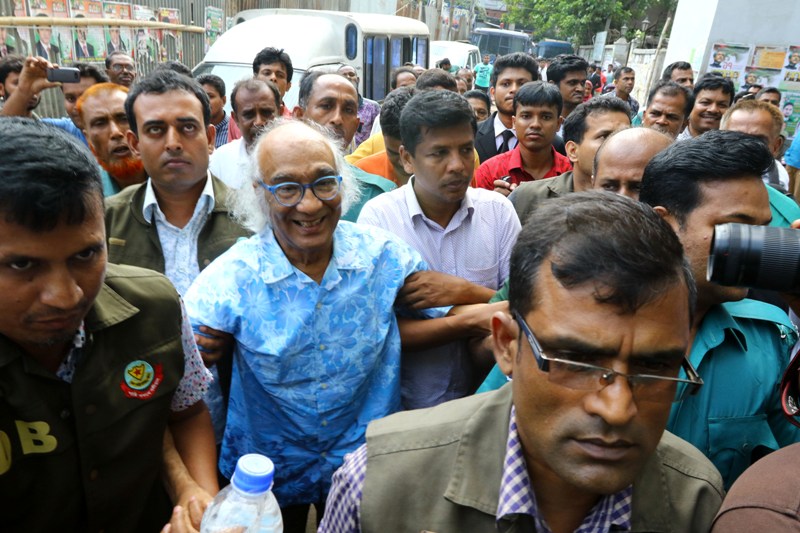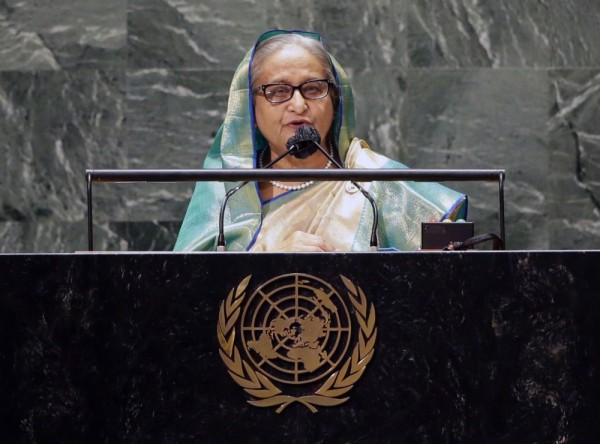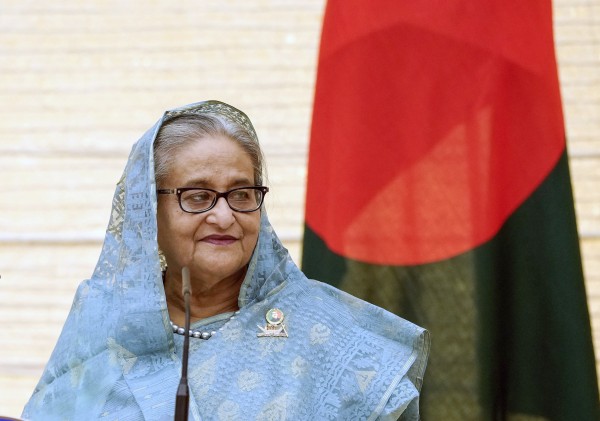The International Press Institute (IPI) today expressed concern about the state of press freedom in Bangladesh following the arrest of a prominent, pro-opposition magazine editor on sedition charges on the heels of the murder of another secular blogger by extremists earlier this month.
Authorities on Saturday arrested Shafik Rehman, editor of popular Bengali monthly magazine Mouchake Dhil, on accusations that he was linked to an alleged plot to abduct and kill the son of Bangladeshi Prime Minister Sheikh Hasina in the United States last year.
Rehman, the former editor of mass-circulation Bengali daily Jai Jai Din and an adviser to opposition Bangladesh National Party (BNP) leader Khaleda Zia, is the third pro-opposition editor arrested in Bangladesh since 2013. His wife said that plainclothes security officers identified themselves as journalists in order to gain access to arrest him.
Police today claimed that Rehman had admitted to meeting with individuals convicted in the United States for bribing a former FBI official in order to obtain information about Sajeeb Wazed Joy, the prime minister’s son. That claim came a day after the police inspector general urged the media not to discuss the case at all until the investigation is concluded.
“Recent developments show an ever-more-chilling environment for journalists in Bangladesh, with those who give voice to political opposition facing imprisonment, while those who criticise extremism face death in one of the most brutal manners possible,” IPI Director of Advocacy and Communications Steven M. Ellis said.
“In the case of Mr. Rehman, we call on the government to publicly share any evidence that would show he was engaged in criminal activity, or to release him immediately and drop these charges. We also urge the government to bring those who are slaughtering journalists and others to justice in order to demonstrate that they will not enjoy impunity, and to do more to protect journalists and others who have been threatened.”
Rehman’s arrest has been met with criticism by media outlets and the BNP. Zia claimed that the case against Rehman is politically motivated and he called for the journalist’s immediate and unconditional release.
The charges are similar to those lodged against Mahfuz Anam, editor of the English-language newspaper The Daily Star. In a television interview in February, Anam voiced regret for a series of stories in 2007 that reported allegations of corruption against Hasina that were later shown to be untrue.
Shortly after that acknowledgment, Anam faced a storm of criticism online and Hasina’s son demanded that he be charged with treason. Anam currently faces charges on 62 counts of defamation and 17 counts of sedition, and could face up to 175 years in prison if convicted.
Matiur Rahman, the editor of Bangladesh’s most-widely read Bengali newspaper, Prothom Alo, The Daily Star’s sister publication, reportedly faces some 25 defamation charges, and the BBC has reported that both newspapers have been the target of “a clandestine attempt to undermine their finances and stifle their operations”.
Saturday’s arrest of Rehman came just nine days after the latest in a series of deadly attacks on secular bloggers and others by Islamic extremists. On April 7, three people attacked law student and secular activist Nazim Uddin Samad, hacking him with machetes before shooting him in the head at point-blank range. Samad was reportedly the latest victim whose name appeared on a “hit list” that Islamic extremists sent to the country’s Interior Ministry in 2013.
IPI included the names of four of those victims on its Death Watch in 2015: bloggers Avijit Roy, Washiqur Rahman Babu, Ananta Bijoy Das and Niladri Chattopadhyay, who had criticised religious intolerance and extremism. Roy, Babu and Das were hacked to death in the street, while Chattopadhyay was killed in his home by assailants posing as potential tenants.
On October 31, 2015, Secular publisher Faisal Arefin Dipon, who published works by Roy, founder of the blog “Mukto-Mona” (Free-Mind), was killed in his office by a group of assailants on the same day that two writers and a publisher were attacked in another part of Dhaka, Bangladesh’s capital.
*This statement was corrected on April 20, 2016 to note that Avijit Roy, not Faisal Arefin Dipon, was the founder of Mukto-Mona.



